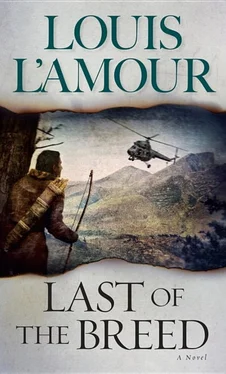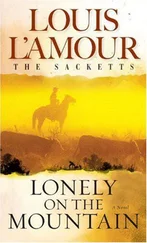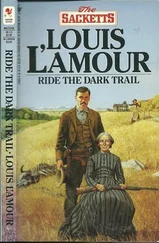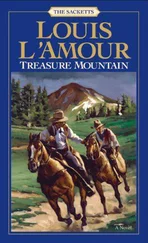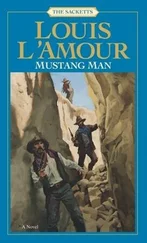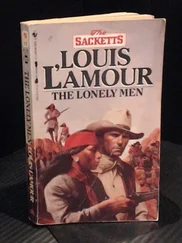Louis L'Amour - Last of the Breed
Здесь есть возможность читать онлайн «Louis L'Amour - Last of the Breed» весь текст электронной книги совершенно бесплатно (целиком полную версию без сокращений). В некоторых случаях можно слушать аудио, скачать через торрент в формате fb2 и присутствует краткое содержание. Город: New York, Год выпуска: 2010, ISBN: 2010, Издательство: Random House Publishing Group, Жанр: Триллер, Историческая проза, Приключения про индейцев, на английском языке. Описание произведения, (предисловие) а так же отзывы посетителей доступны на портале библиотеки ЛибКат.
- Название:Last of the Breed
- Автор:
- Издательство:Random House Publishing Group
- Жанр:
- Год:2010
- Город:New York
- ISBN:978-0-553-89935-1
- Рейтинг книги:3 / 5. Голосов: 1
-
Избранное:Добавить в избранное
- Отзывы:
-
Ваша оценка:
- 60
- 1
- 2
- 3
- 4
- 5
Last of the Breed: краткое содержание, описание и аннотация
Предлагаем к чтению аннотацию, описание, краткое содержание или предисловие (зависит от того, что написал сам автор книги «Last of the Breed»). Если вы не нашли необходимую информацию о книге — напишите в комментариях, мы постараемся отыскать её.
Last of the Breed — читать онлайн бесплатно полную книгу (весь текст) целиком
Ниже представлен текст книги, разбитый по страницам. Система сохранения места последней прочитанной страницы, позволяет с удобством читать онлайн бесплатно книгу «Last of the Breed», без необходимости каждый раз заново искать на чём Вы остановились. Поставьте закладку, и сможете в любой момент перейти на страницу, на которой закончили чтение.
Интервал:
Закладка:
“I can hunt,” and then he added, “and trap.”
“It is an advantage. Our only income is from trapping. And our best hunter is gone. We need meat.”
Joe Mack indicated his pack. “It is yours, a fat bear.”
“Ah? I understood your people do not kill bears.” He flushed a little. “I mean the Indian people.”
“Only when there is need. We explain it to the bear.”
“I see.” He turned to his daughter. “We must instruct him in our procedure.” He turned back to Joe Mack. “We are left alone, but in the event a search should be made we have places to hide. So far Wulff does not know there are so many of us. And we make ourselves useful. Every two months a bundle of furs is left behind his dwelling. He wants only the best.”
Joe Mack glanced over at Natalya. “If you wish? I would share the meat with you and your father.”
He looked at her father. “Your home is here?”
The older man smiled. “For the present. One day we hope to return to our own country. We are from Lithuania, a country the Russians absorbed after World War II. You know us?”
“A little. There were Lithuanian miners who lived in the town where I first went to school. Often I visited in the home of one of my friends at school. His father was forever reciting the poetry of Martin Lap.”
“Of course. He was one of our best-known poets.” He shook his head. “Amazing! To hear his name from an American!” He paused. “I was a teacher, you know. A professor in a university, but the Russians only remembered that I was one of those who went to the forest to live as a guerrilla.”
“You fought the Germans?”
“I did, but the Russians only remember that I fought, that I resisted. All such are suspect for fear we might do so again, against the Russians. I fear I am past all that. Now all I wish is peace and to return to my home.”
“Will it be there? Will anything be the same?”
The older man shook his head. “Very little, I am afraid. It would be home, however, our own country. I wish Talya to know it.”
“This,” Joe Mack gestured, “is your home? Your home now?”
“Oh, no!” he smiled. “This is an old stable that was fixed up as a place to sleep for workmen. We use it from time to time when traveling. Nobody lives here.”
He tasted the meat Talya served and then ate with relish. “It is good.” He glanced up again. “You killed a bear? With that?” He indicated the bow.
“Why not? My people knew nothing else until the white man came. We killed even larger beasts with it, although,” he added, “this was a large bear.”
The wind blew down the narrow valley, whining around the eaves and rustling the branches of the evergreens. They told him of their life and of the risks they ran and that despite the various prisons of one kind or another, all Siberia was considered a prison. “Many of those sent here in exile did not wish to leave, even when they could. They stayed on, and many have raised families here.
“Many of us prefer the deep woods. We are not bothered here. As I have said, some know we are here, but not exactly where, and we bother no one. Out of sight, out of mind, as the saying is.”
He got to his feet. “Come! It is time to go. We will share your burdens,”
It was cold in the outer air. Joe Mack shivered and looked along the icy gorge. Then he followed Natalya and her father. His name, he had said, was Stephan Baronas. Leaving the canyon, they took a dim trail up through the trees. It was sheltered from the wind, so though it was cold, there was less wind chill.
The village, when they came to it, was a mere cluster of huts in the deep forest. No effort having been made to establish a clearing, there were just the huts, some of them mere dugouts faced with logs, scarcely to be seen until within a few feet, for trees and brush masked their faces.
“This Wulff you spoke of, is he a district official of some kind? Is he close by?”
“He is miles from here, in Aldan. One of us was caught selling furs. Now if we deliver furs to him he says nothing. It is a trouble to meet his demands.”
The place they stopped at was a dugout faced with logs. It was tight, warm, and almost impossible to see. They had hidden themselves well.
“But how do you live?”
“We hunt and gather. Here and there in the woods we have patches of corn. We grow vegetables and barley, always far from here. It is very difficult, but we manage. Actually,” he added, “we live better than many of the people in the villages.”
“Share meat with the others,” Joe Mack suggested. “In the morning I will hunt again.”
“That is good of you. Will you spend the night with us?”
“The night, but then I must find my own place. I would not intrude,” he added.
The night was very still, yet he slept badly. He had become accustomed to the open air and the sounds of the trees, of animals moving. Here it was too still, too comfortable.
Did they have another way out? He knew better than to ask, but was restless at not knowing. To be caught in such a place… it was a trap. Or could be.
He found that he liked Stephan Baronas. He was a quiet, pleasant man, yet he seemed to have strength of character. As for Talya, she was quietly beautiful.
Both moved well in the forest. They were learning to live with it, he decided, learning to move with the wind, to accept the wilderness and not fight it. And that was the key to survival.
At last he slept, and when dawn came Talya’s moving about awakened him. He sat up quickly. “I was tired,” he said. “I did not realize how tired.”
Coffee was on, and it tasted good. He sipped the coffee and tried not to watch Talya as she moved about. Her father joined them.
“I shall find a place,” Joe Mack said, “but first I will set out a line of traps. Snares and deadfalls,” he added, at their questioning looks. “I trapped to pay my way at school,” he explained. “In the mountains of America there are many wild animals.”
It was pleasant not to have to think about moving on, and for the moment not to worry about being discovered. Baronas talked well, and as he talked his English returned to him. He spoke, he said, Polish, French, and German, as well as Russian. “The language of the Lithuanians is closer to Sanskrit than to any other, and we were an Indo-European people. Most of us were Protestants, Lutherans, or Calvinists.”
“It would help,” Joe Mack suggested, “if I could speak Russian.”
“We will teach you,” Baronas replied, “if there is time.”
Joe Mack found his own place in a thick stand of birch mingled with aspen. Here and there were clusters of larch and pine. As usual in aspen forests the deadfalls were many, but as he worked his way deeper into the forest, planning to build a shelter from the dead timber, he found a crack in the rock of the cliff that lay behind the aspen. It was scarcely wide enough to edge through, but he had long since learned never to trust first appearances. He had edged back about eight feet when he stopped in midstep. Before him there was an ominous black hole that seemed to extend on into the mountain. Tossing a piece of rock, he heard it bound from side to side and finally end, far below, in a splash. He was starting to edge back when he noticed a shelf of rock going off to his left. It was all of four feet wide and ended in a much wider shelf.
Preparing a torch, he edged back into the crack, and lighting the torch he saw a wide area of bare flat rock under an overhang higher than a man’s head. It was a cave-shelter, opening on that crevasse in which he had heard water, but the cave was partly sheltered by the rock wall and partly by a thick stand of larch. It was a fine hiding place, an excellent shelter, and it needed exploration.
Читать дальшеИнтервал:
Закладка:
Похожие книги на «Last of the Breed»
Представляем Вашему вниманию похожие книги на «Last of the Breed» списком для выбора. Мы отобрали схожую по названию и смыслу литературу в надежде предоставить читателям больше вариантов отыскать новые, интересные, ещё непрочитанные произведения.
Обсуждение, отзывы о книге «Last of the Breed» и просто собственные мнения читателей. Оставьте ваши комментарии, напишите, что Вы думаете о произведении, его смысле или главных героях. Укажите что конкретно понравилось, а что нет, и почему Вы так считаете.
